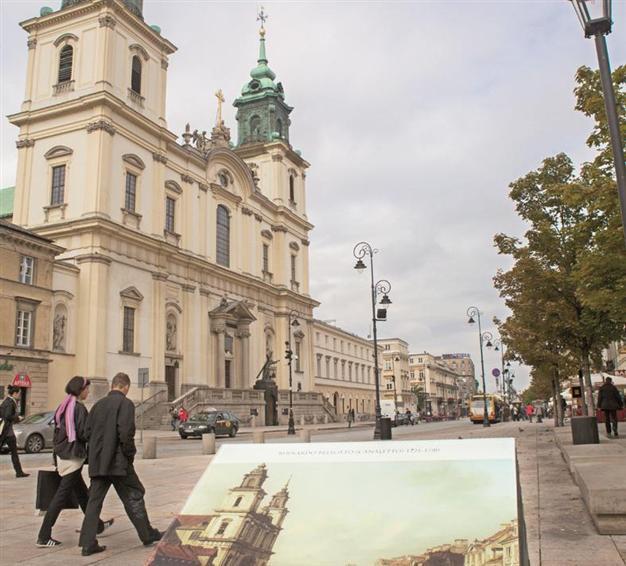Polish transition under spotlight on 25th year
WARSAW

Poland has managed to transform itself and to generate propserity for its people, said the participants of a conference that was held to mark 25th anniversary of first post-war elections.
Poland will celebrate the 25th anniversary of the historic first free post-war elections on June 4, which marked the beginning of the end of communism in Europe. For that purpose, the country is hosting a series of organizations that will be attended by politicians, business leaders and think tanks from around the world.
Over the 25 years, the ex-Soviet country has become the largest economy in Central Europe, the sixth largest in the EU and, depending on the measurement, the 19th to 21st largest in the world.
Last week, Poland Today, an English-language magazine, organized the “Poland Transformed” conference to discuss the story of the country’s transformation process.
U.S. President Barack Obama also plans to speak in Warsaw to mark the anniversary. The president will hold up Poland as an example for Ukraine, Obama’s foreign policy adviser Ben Rhodes said recently. This year is also significant for Turkey, as both countries celebrate the 600th anniversary of the establishment of diplomatic relations.
The conference on May 28 hosted former Prime Minister Jan Krzysztof Bielecki, senior editor at The Economist Edward Lucas, Stratfor Founder and Chairman George Friedman, CEO of the Warsaw Stock Exchange Adam Maciejewski, CEO of General Electric in Europe Beata Stelmach, member of the Prime Minister’s Economic Council, Witold Orłowski.
Participants discussed the drivers behind Poland’s success, business’s role in the Polish transformation, the challenges and opportunities facing the new generation of Polish business leaders, Poland’s image abroad and Poland’s place in the global context.
During his opening address, Bielecki, Prime Minister of Poland from 1990 to 1991 and currently the head of Prime Minister Donald Tusk’s Economic Council, spoke about the initial conditions that helped to establish a solid foundation for economic success. “The political reforms that were implemented were the strongest support for the economic reforms,” he said.
Professor Witold Orłowski, chief economist at PricewaterhouseCoopers in Poland, pointed out in his speech that the country’s greatest advantage over the last 25 years has been its people. “If you had to choose one driving force that was behind Poland’s economic success, it is its people,” he said. “Over the past 25 years, the economy has taken full advantage of its human capital. We have moved from 30 percent of the average European gross domestic product to just over 60 percent.”
Drivers of successDuring the first panel, business and political leaders discussed the reasons behind Poland’s successful transformation. The World Bank’s Xavier Devictor called Poland a “champion” of the region when it comes to economic reform. “Poland has introduced unprecedented reforms encouraging business development,” he said, adding that these made the country much more competitive.
Maciejewski pointed out that the rapid development of Poland’s capital market shows how important it was to the country’s economic transformation.
In the second panel, participants discussed the development of business in the country over the past 25 years, as well as the imperative for Polish business to become more innovative as it faces the future.
A third panel, moderated by Mirella Panek-Owsiańska, President of the Polish Responsible Business Forum, brought together young business leaders to talk about the 21st-century challenges facing Polish business.
The conference ended with a discussion between Lucas and Friedman on Poland’s strengths and vulnerabilities in a geopolitical context. The experts agreed that Poland has become a regional power and that it has the potential to increase its influence in Europe. “Poland will emerge when the two powers [Russia and Germany] weaken,” said Friedman, adding “we’re going to see a very different line-up in Europe in 25 years.”
